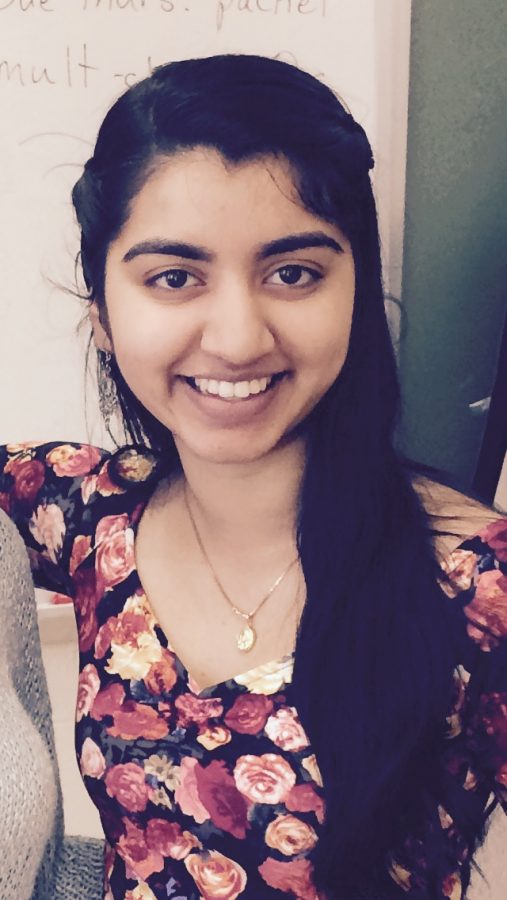The Summer of an InSTAR Student: Kavya Tangella
October 9, 2016
This past summer, seniors in Ward Melville’s highly prestigious InSTAR program were hard at work finishing up their independent research projects. InSTAR is a three year program for hard working high school students who aspire to gain the experience and skills needed for science research. Kavya Tangella, a senior in the InSTAR program spent her summer performing research in the Psychology Department at Stony Brook University. Here’s what she told us about her project.
Kscope: Describe your research project.
Tangella: This research project tests how the two senses of audition and vision work together. The main focus is how a change in sound can affect visible persistence—the perceptual persistence of a visual object after it has disappeared from the screen it appeared on. The hypothesis being tested is that a sudden change in sound frequency and visual object size in a moving visual sequence can lead to enhanced visible persistence. This goal will be accomplished by running a series of experiments in which a circle will move and periodically change size with and without changes in an accompanying series of tones. The only procedures that will be done directly to the human subjects will be simple perceptual testing.
Kscope: How did you find your lab?
Tangella: First, I searched online to see what kind of research I want to do, and came across a professor at Stony Brook whose research I was interested in. I sent him an email expressing my interest in his research, and he offered me a position at his lab in Stony Brook’s Psychology Department.
Kscope: For how long did you research?
Tangella: I have been doing this since December of sophomore year, but did most of my research this summer.
Kscope: Do you plan on submitting your research to any competitions?
Tangella: Yes, I plan on submitting my research to the Regeneron Science Talent Search competition.
Kscope: Describe your lab experience.
Tangella: My lab experience was not like most people’s as I didn’t go into the lab everyday. I would meet with my mentor sometimes and go in when I needed to test people or analyze the data. Overall, it was a good experience.
Kscope: How did you get participants for your experiments?
Tangella: All of the volunteers are Stony Brook Psychology students, and they have to be above the age of 18. To get a hold of volunteers, there is a Stony Brook database where I posted time slots for my experiment and whoever was available would sign up for testing.
Kscope: Did you run into any problems while researching?
Tangella: I had a few issues with the program we used for testing. Sometimes it would stop working in the middle of a test, so I would have to discard that person’s results. Luckily, we were able to figure out the problems.
Kscope: Do you plan on continuing the research you did this summer in your college years or as a career option?
Tangella: I plan on going into a field like Psychology or Neuroscience, but I’m not sure if I’m going to specifically continue this exact project.
Kscope: What is your advice for students who want to get involved in research?
Tangella: I think that students should look at all the fields they are interested in, and look for professors that research in those fields. Students should also ask many professors for opportunities, because lots of times people won’t reply to emails or say no, so be persistent and don’t give up.













